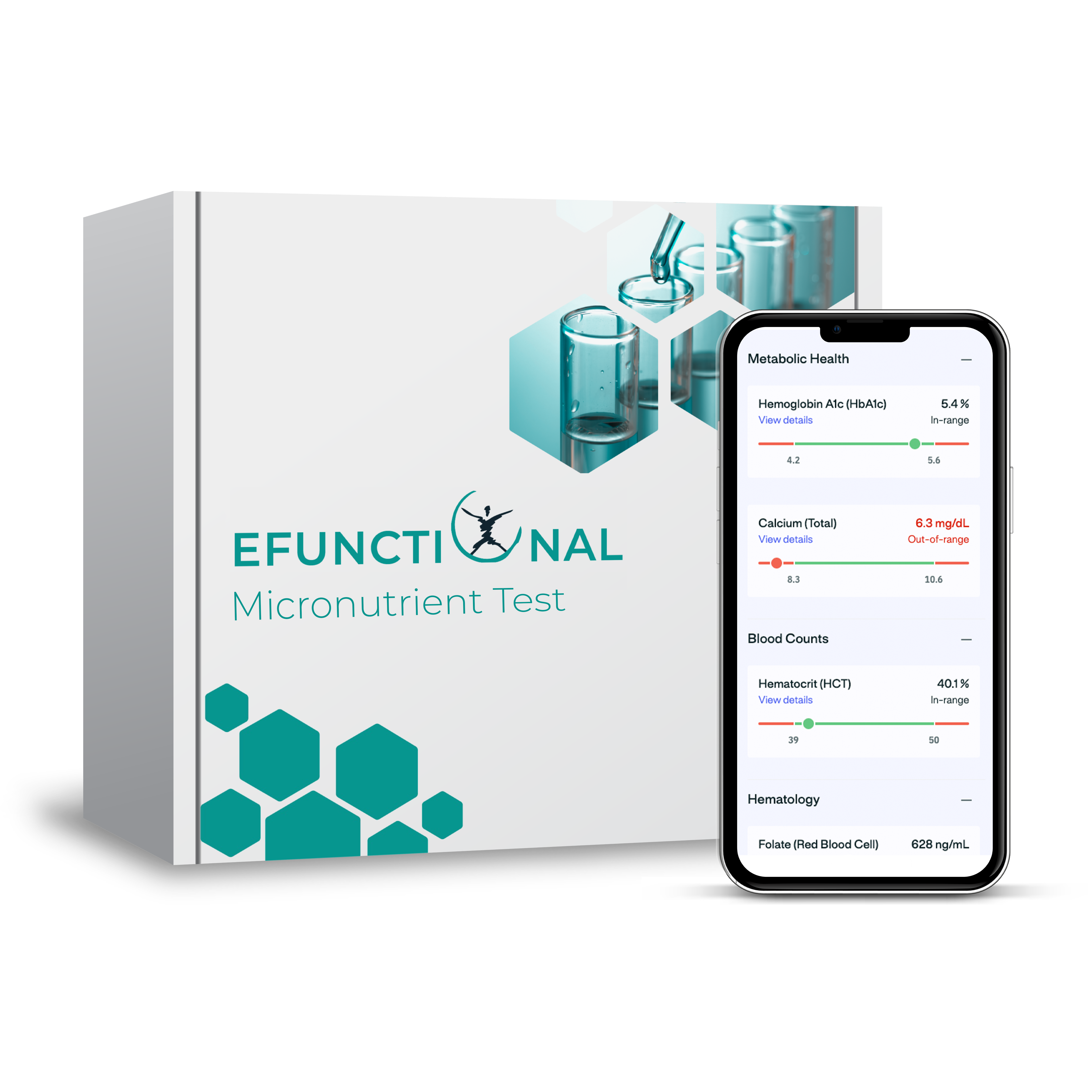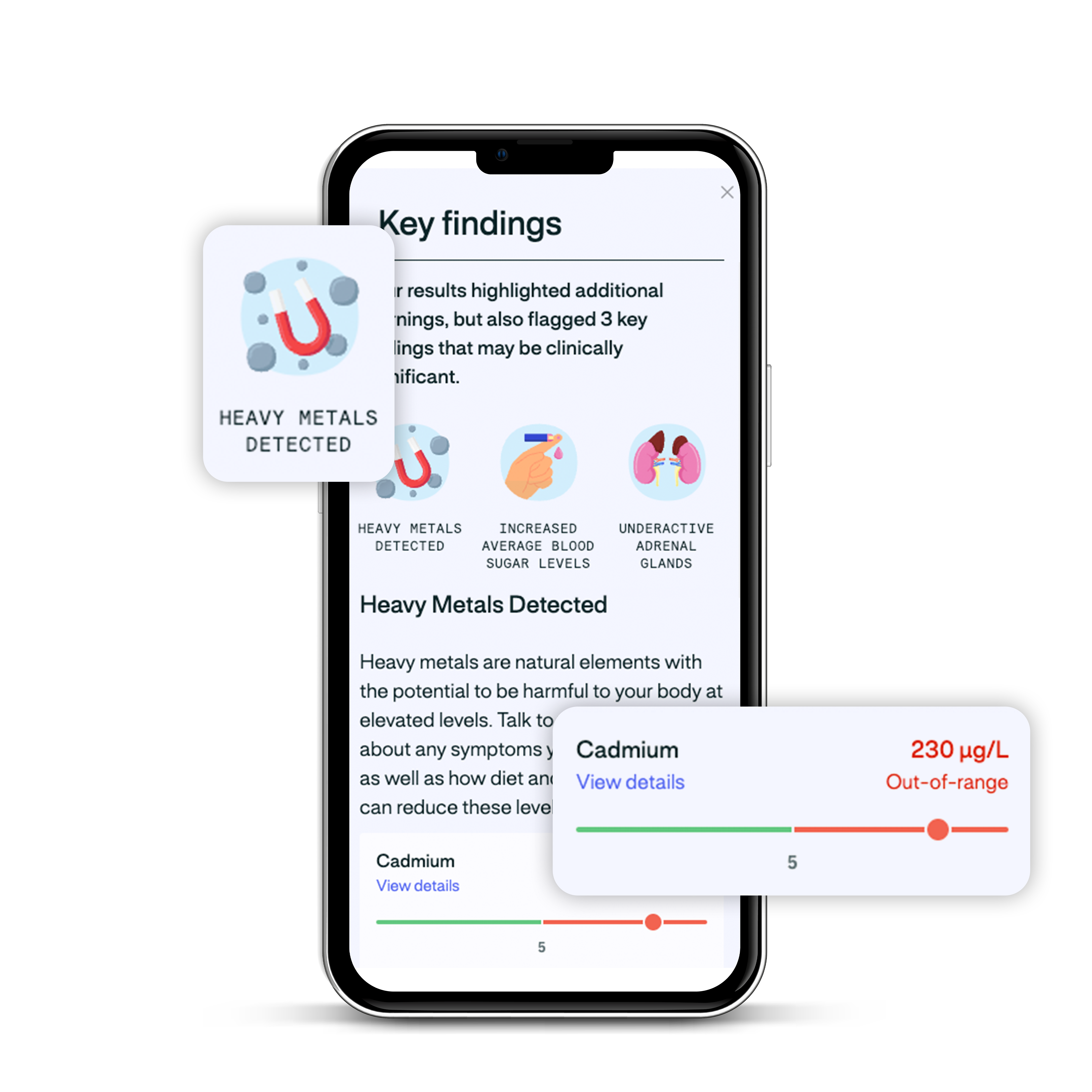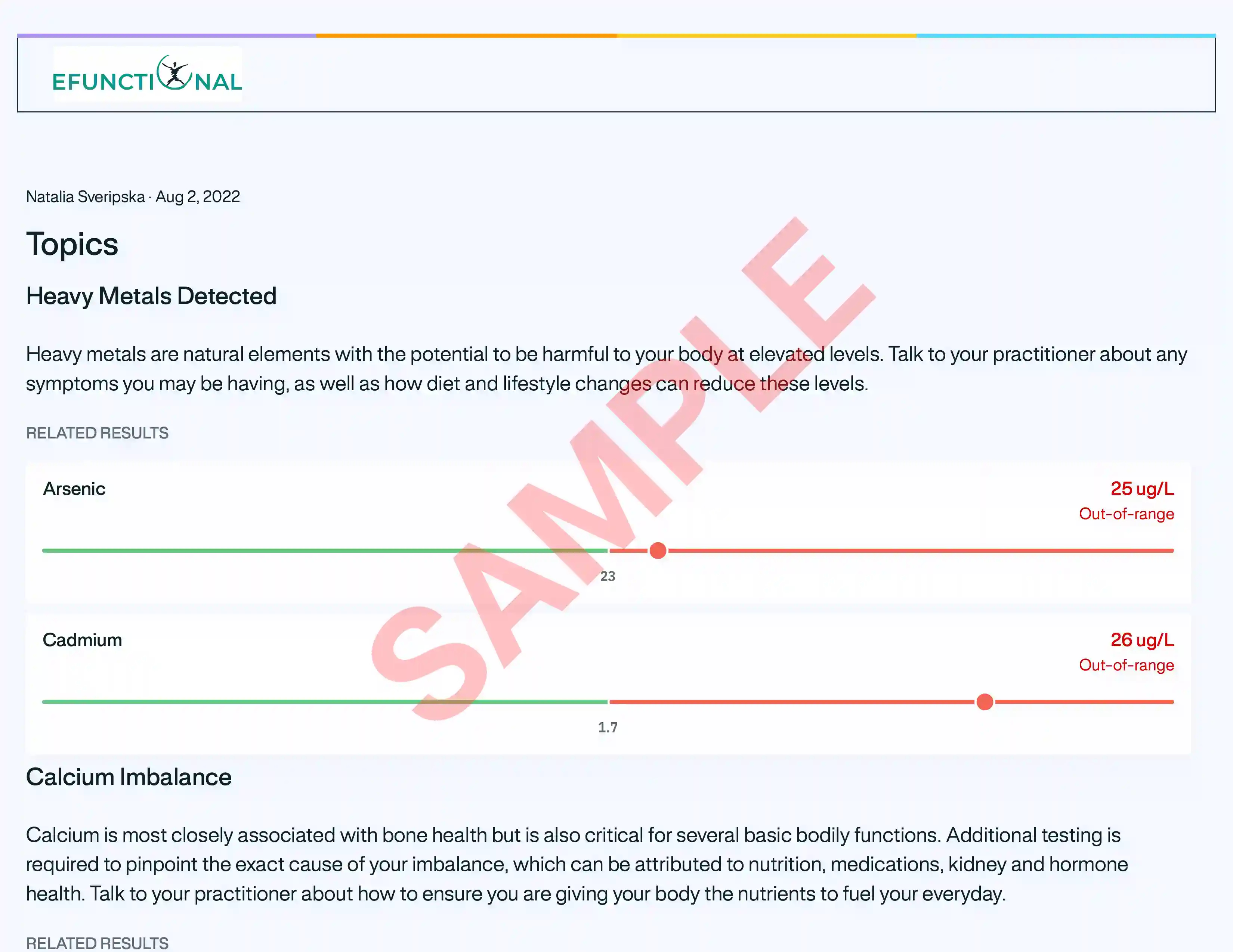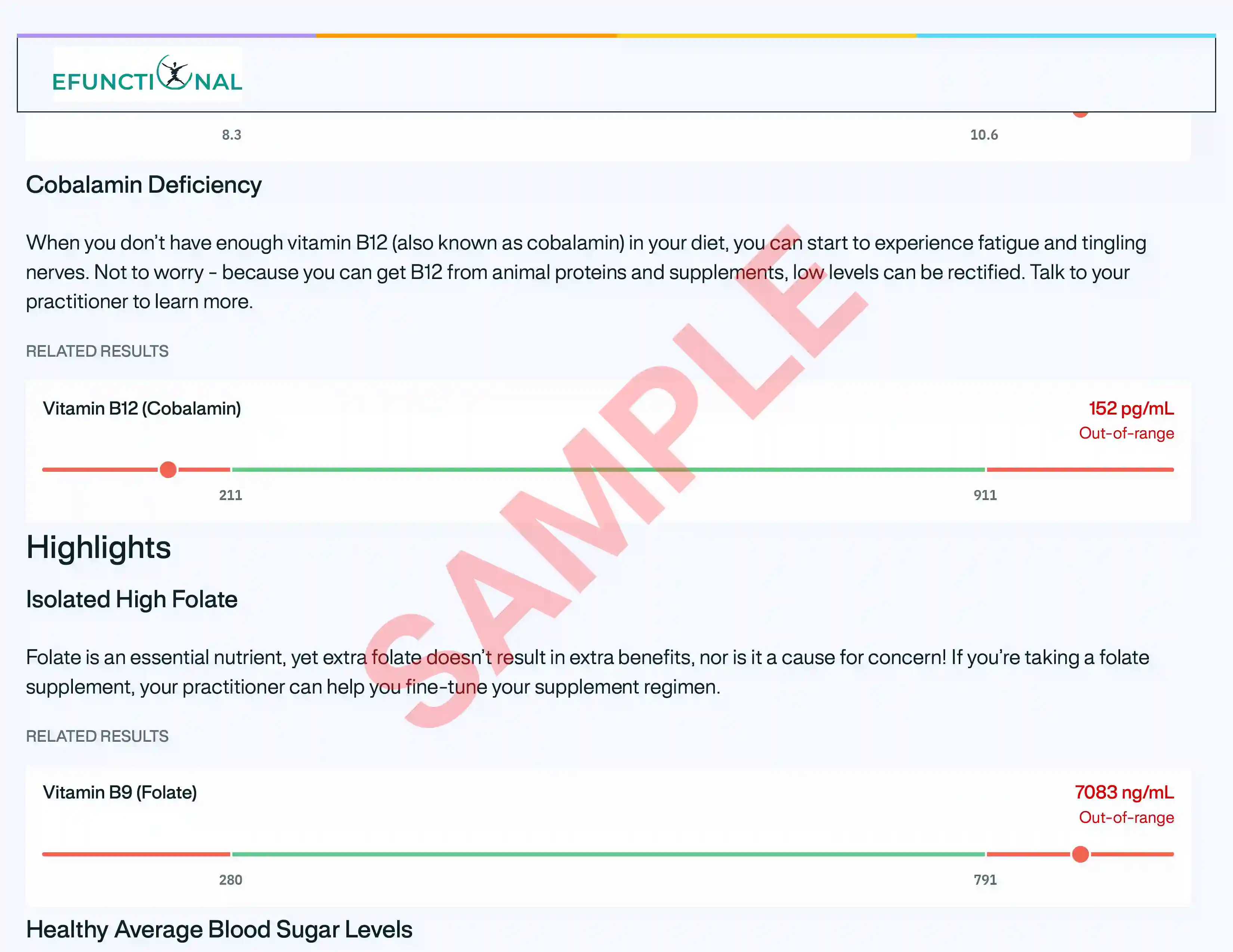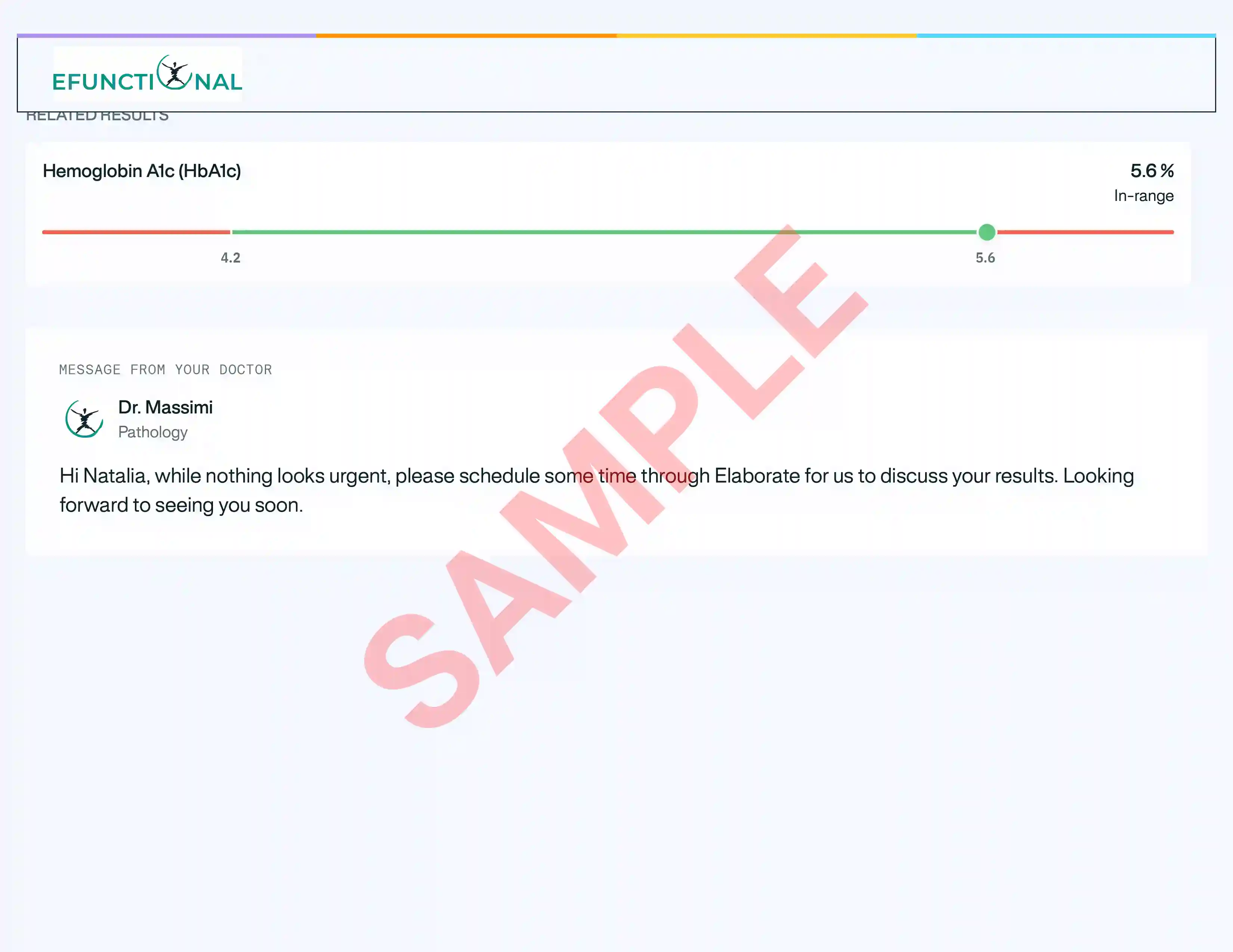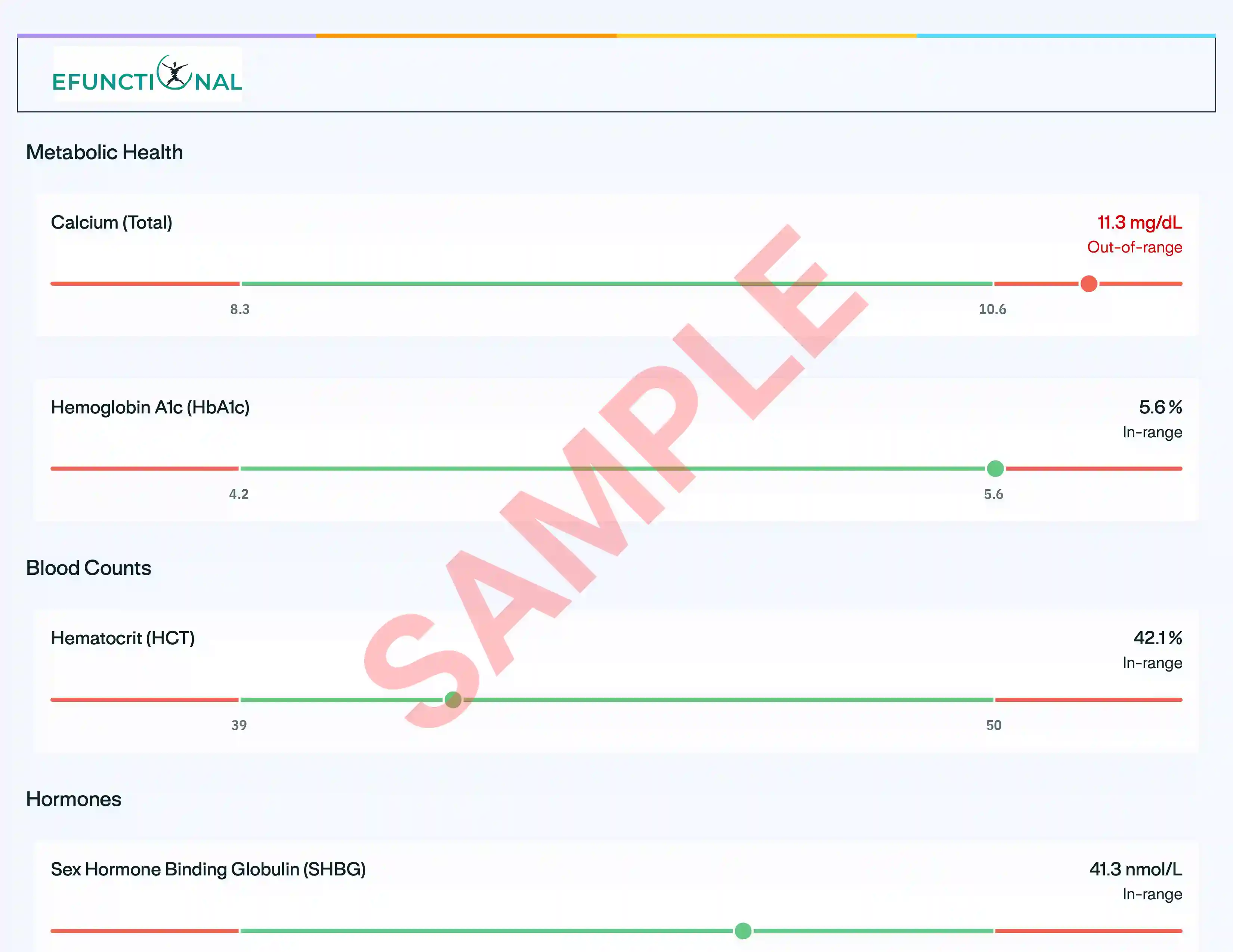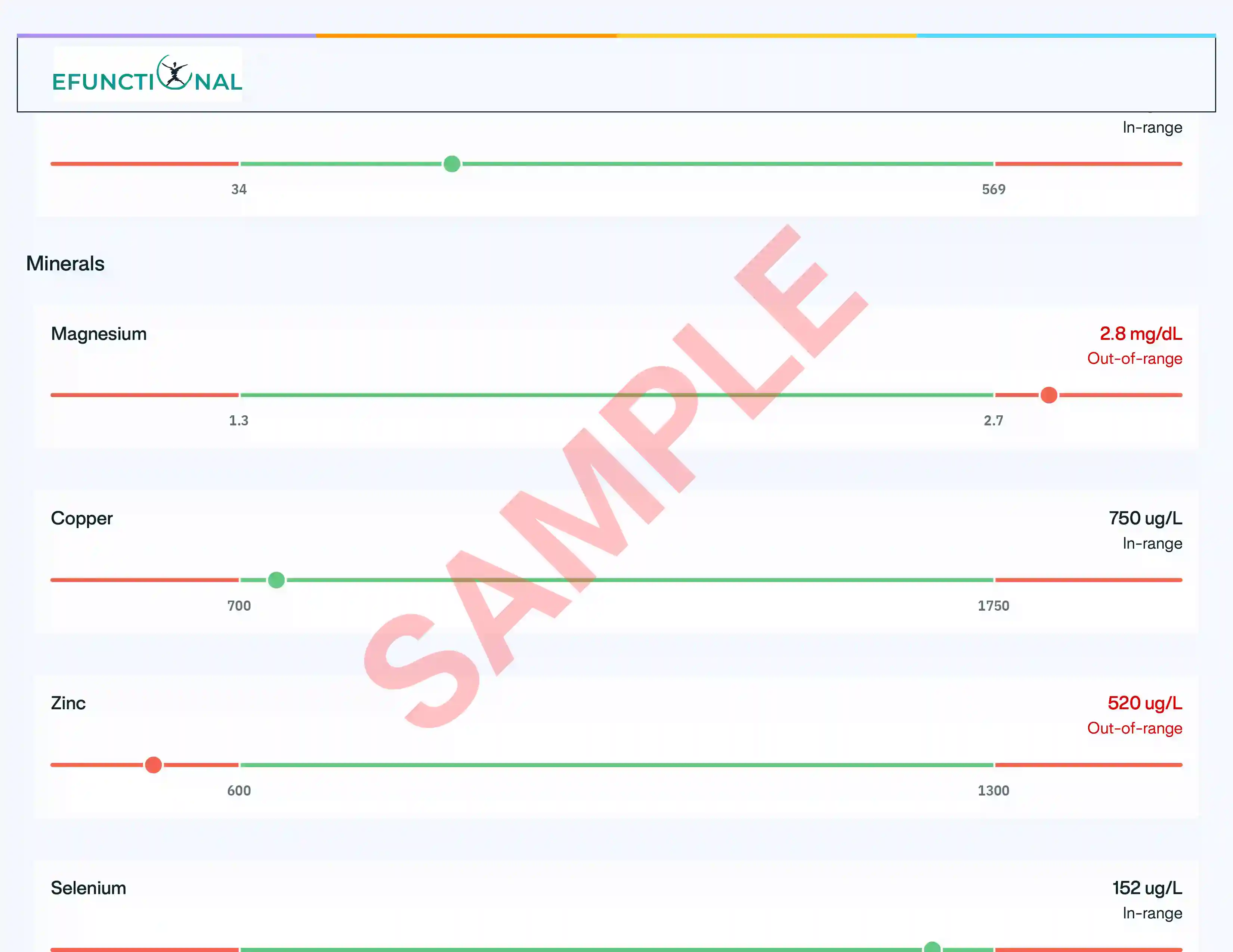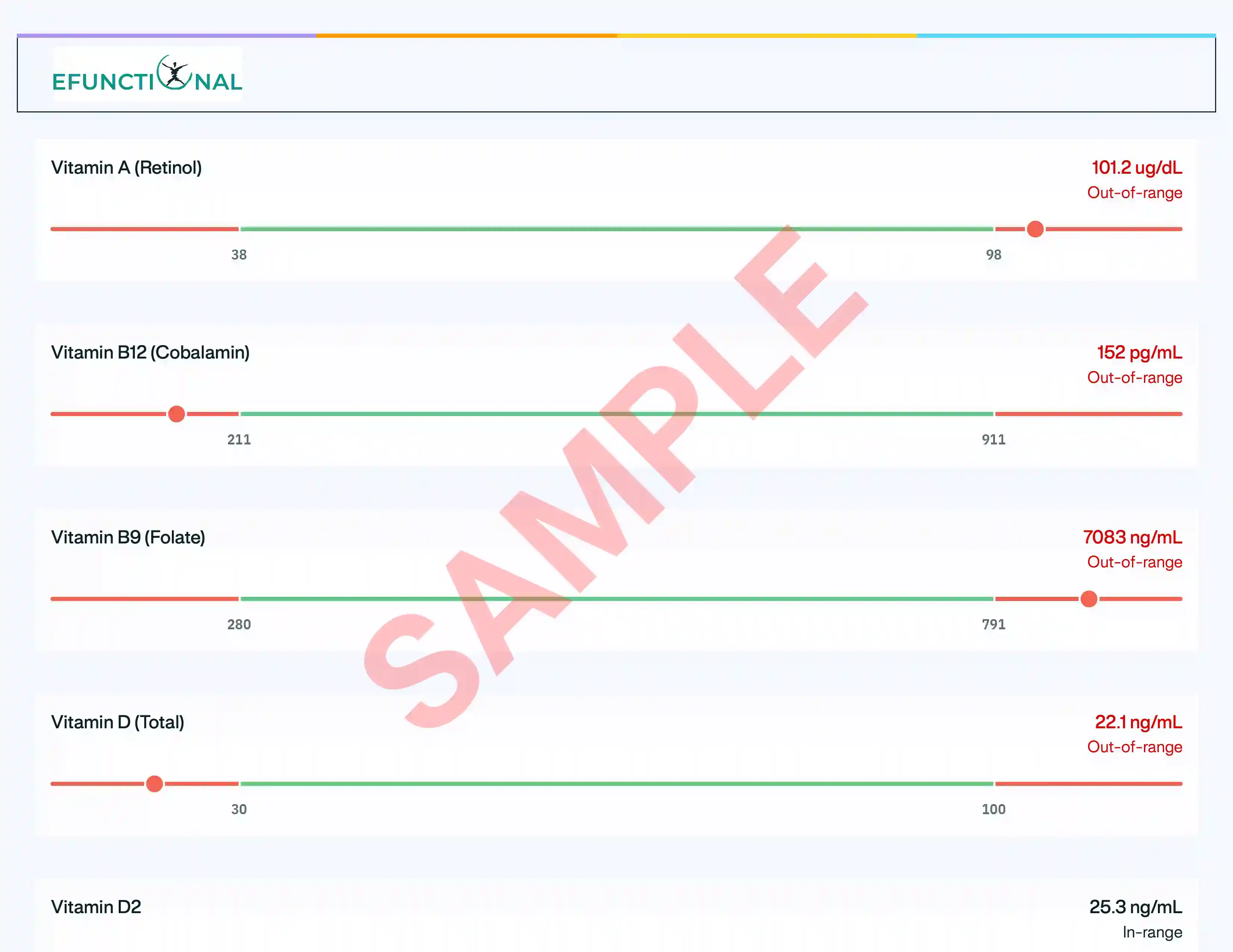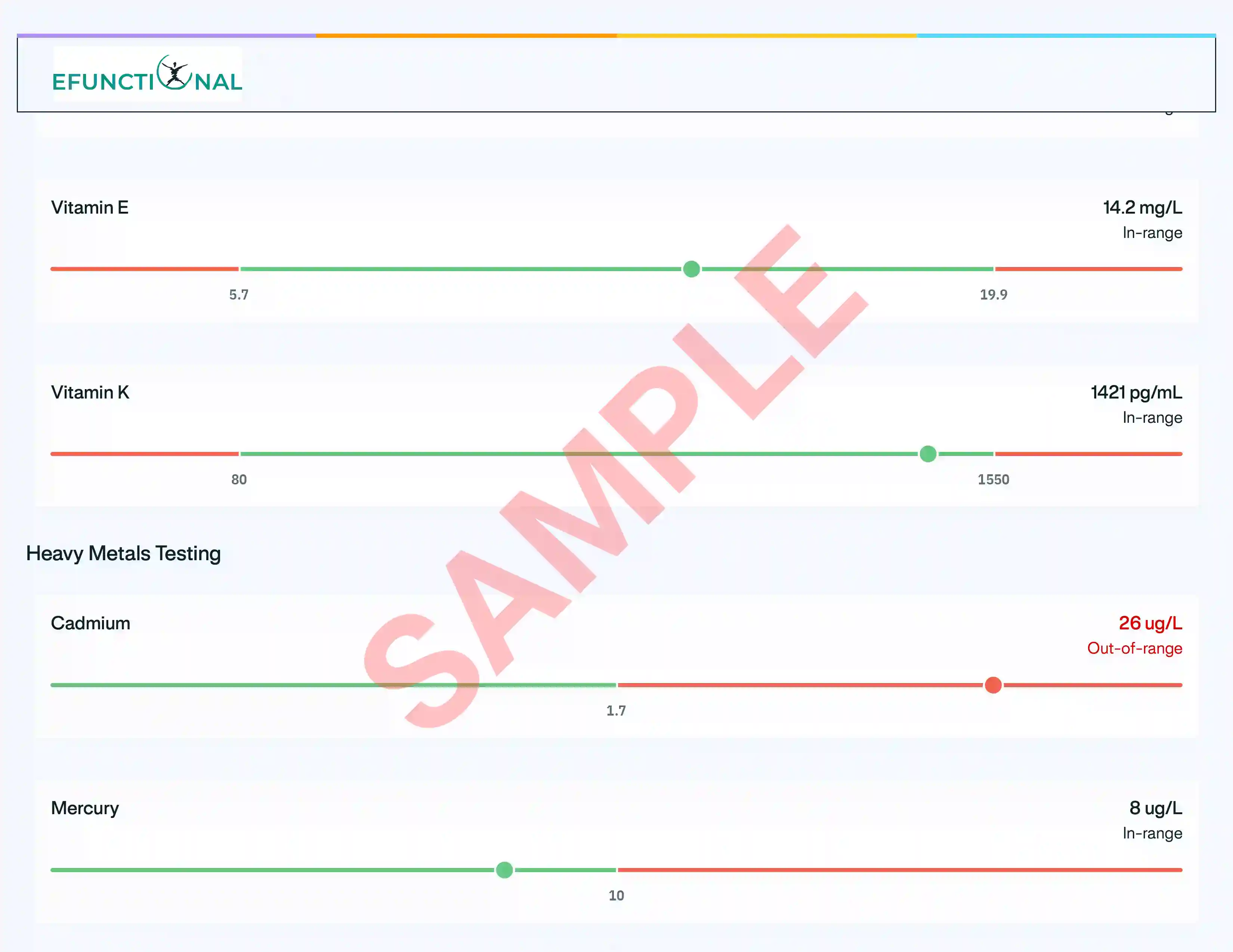Micronutrient Test
The Micronutrient Test provides key insights into your overall health by identifying essential vitamins and minerals that may be deficient in your diet. Online results in 7 days.
Tests For: Vitamin B1, Vitamin B2, Vitamin B3, Vitamin B5, Vitamin B6, Vitamin B7, Vitamin B12, Vitamin A, Vitamin 25OH-D, Vitamin E, Vitamin C, Vitamin K1, Hematocrit, Calcium, Hemoglobin A1C, Magnesium, Zinc, Copper, Selenium, Arsenic, Mercury, Cadmium, DHEA Sulfate, Folate, Sex Hormone Binding Globulin.
Collection Method: Certified Concierge Mobile Phlebotomist will come directly to your home, or location of choice.

Personalized Supplement

Confidential Results

Trusted Laboratories
Optimal Health: Micronutrient testing can help ensure you have the right balance of vitamins and minerals for overall well-being.
Prevent Deficiencies: Detecting deficiencies early can help prevent health problems associated with inadequate micronutrient levels.
Personalized Nutrition: Testing provides insights for tailored dietary adjustments, optimizing your nutrient intake.
About this test
Micronutrients are vitamins and minerals needed by our bodies in very small amounts. Even though we only need small amounts, they are essential for normal bodily functions like fighting infections and keeping bones strong.
Symptoms of micronutrient deficiencies may include, but are not limited to:
- Fatigue/low energy
- Muscle aches or cramps
- Hair loss
- Slow wound healing
- Bone pain or weakness
- Irregular heartbeat
- Poor night vision
Many people do not experience symptoms of micronutrient deficiencies. Taking supplements to correct micronutrient deficiencies can improve your health, but some micronutrients can be dangerous if you have too much. That is why it is important to have testing to find out which micronutrients you are lacking. This way, you can customize what supplements you actually need.
Schedule a time for our trained and certified concierge phlebotomist to come to your home or other designated location and collect your sample.
Almost one-third of people in the United States are at risk of at least one micronutrient deficiency, but some groups of people have a particularly high risk:
- Pregnant people
- People who are lactating (breastfeeding)
- Adults over age 50
- Obese individuals
- You are experiencing symptoms of a deficiency*
- People with chronic conditions that affect metabolism (like diabetes) or that affect the ability to absorb nutrients in the gut (like Crohn’s disease and ulcerative colitis)
- People on strict diets (ex: vegetarian, vegan, keto, dairy-free, or gluten-free)
You should consider this test if you fit into any one of these categories. You can also take the micronutrient test if you simply want to identify areas for improvement of your overall health.
Please note: some personal products such as lotions and sunscreen contain zinc and therefore may impact the accuracy of your zinc test result. Additionally, supplements that contain biotin (B7) can impact your results. Wait at least 8 hours after your last dose before collecting your sample.
The Micronutrient Test is not suitable for anyone under the age of 18. The vitamin B12 component of the test is not suitable for those under the age of 22, so if you are under the age of 22, you will not receive a vitamin B12 test result.
Vitamin B1
Vitamin B1, also called thiamine or thiamin, is found in both plants and animals and plays a crucial role in certain metabolic reactions. Your body needs it to form adenosine triphosphate (ATP), which every cell of the body uses for energy.
Vitamin B2
Vitamin B2, also called riboflavin, works as an antioxidant, fighting damaging particles in the body known as free radicals. Free radicals can damage cells and DNA, and may contribute to the aging process, as well as the development of a number of health conditions, such as heart disease and cancer. Riboflavin is also needed to help the body change vitamin B6 and folate into forms it can use. It is also important for growth and red blood cell production.
Vitamin B3
Vitamin B3, also called niacin, helps the body make various sex and stress-related hormones in the adrenal glands and other parts of the body. Niacin helps improve circulation, and it has been shown to suppress inflammation.
Vitamin B5
Vitamin B5, also called pantothenic acid, is critical to the manufacture of red blood cells, as well as sex and stress-related hormones produced in the adrenal glands, small glands that sit atop the kidneys. Vitamin B5 is also important in maintaining a healthy digestive tract, and it helps the body use other vitamins, particularly B2.
Vitamin B7
Vitamin B7, also called biotin, is needed for growth. It helps the body break down and use food. Lack of biotin may lead to muscle pain, dermatitis, or glossitis (swelling of the tongue). Signs of biotin deficiency include skin rashes, hair loss, and brittle nails.
Vitamin B12
Vitamin B12 is a vitamin found mainly in animal products. It is involved in the creation of red blood cells, which carry oxygen around the body. Vitamin B12 is also involved in the normal growth and function of a healthy nervous system. Additional vitamin B12 is important for people who are breastfeeding.
Vitamin A
Vitamin A is essential for eye health. It also plays roles in the immune system, bone health, and maintaining the lining of blood vessels and the digestive tract. Carrots get their color from beta-carotene, a precursor that is converted into vitamin A in the body.
Vitamin D
Vitamin D helps the body absorb and retain calcium and phosphorus, which are essential for forming and maintaining strong bones and teeth. It also plays a role in regulating normal immune system function and maintaining a healthy heart and muscles. Vitamin D can be produced by the skin, but people with darker skin or people who live in climates with limited winter sunlight may not produce enough vitamin D from sun exposure.
Vitamin E
Vitamin E is an antioxidant that helps protect cells from damage. It helps with maintaining healthy skin and eyes, as well as the functions of the brain and immune system. Vitamin E is commonly found in plant-based oils, nuts, seeds, fruits, and vegetables.
Vitamin K
Vitamin K is found in green leafy vegetables like collard greens, kale, and spinach. It plays essential roles in blood clotting and bone health.
Hematocrit
Hematocrit is a measure of the proportion of red cells in your blood. Red blood cells are essential for carrying oxygen through your body.
Hemoglobin A1C
The hemoglobin A1C test measures your average blood sugar levels over the past 3 months and can be used to diagnose pre-diabetes or diabetes. Hemoglobin is the oxygen-binding protein in your red blood cells. When sugar enters the blood, it can attach to hemoglobin. A hemoglobin A1C test measures the percentage of your red blood cells that have sugar-bound hemoglobin.
Magnesium
Magnesium is a mineral found in several plant foods like legumes, dark green leafy vegetables, nuts, seeds, whole grains, and fortified cereals. It is also found in meats and is an ingredient in laxatives. Magnesium regulates blood sugar and blood pressure and is essential for healthy and strong bones and teeth. It also acts as a conductor for muscle contraction and helps keep the heart beating steadily.
Zinc
Zinc is an essential trace mineral that helps cells grow and multiply. This means that is important at times of growth including childhood, adolescence, pregnancy, and wound healing. Zinc is also necessary for maintaining a healthy immune system. Zinc is present in many foods, including animal products (meat, dairy products, eggs), whole grains, legumes, nuts, and seeds.
Copper
Copper is a naturally occurring metal and trace nutrient found in high-protein foods like organ meat, shellfish, fish, nuts, and seeds, as well as whole grains, and chocolate. Copper plays an essential role in producing energy for the body, absorbing iron to build red blood cells, and maintaining healthy immune and nervous systems.
Selenium
Selenium is an essential trace mineral that helps make DNA and protect against cell damage and infections. It is also involved in reproduction and thyroid function. Selenium is found in common foods including bread, cereals, poultry, red meat, and eggs.
Arsenic
Arsenic is a toxin naturally found in soil and groundwater.
Mercury
Mercury is a toxic liquid metal. In the United States, exposure to methylmercury mainly occurs through eating fish and shellfish.
Cadmium
Cadmium is a natural element found in tiny amounts in air, water, soil, and food. It is associated with an increased risk of lung cancer.
DHEA
Dehydroepiandrosterone (DHEA) is a hormone naturally produced in the adrenal gland that helps produce testosterone and estrogen. Since DHEA declines with age, people use DHEA as an anti-aging treatment and to treat symptoms of menopause.
Folate
Folate, also called folic acid or vitamin B9, is a vitamin critical during pregnancy. It is also useful in producing DNA and RNA and metabolizing proteins.
Sex Hormone Binding Globulin
Sex hormone binding globulin (SHBG) is a protein made by your liver that binds estrogen, dihydrotestosterone (DHT), and testosterone to carry them through the blood. SHBG controls the amount of testosterone available for use in your body.
How it works
Order your test kit online
Rediscover Wellness - Your Micronutrient Test Kit will be delivered right to your home. Please do not open the kit until your Certified Concierge Mobile Phlebotomist arrives to collect your sample.


Mobile phlebotomy
Schedule a day and time at your convenience for one of our certified concierge mobile phlebotomists to collect your sample. Your phlebotomist will also package the kit and send it back to the Laboratory for testing.
Review your results
Log In to your secure portal to view your results quickly and confidentially


Personalized supplements
Optional - order your personalized supplements to address micronutrient deficiences
Still have questions?
Why do I need to activate my test?
Activating the test connects you to the unique alphanumeric barcode within your Efunctional sample collection kit. The laboratory cannot process your sample if the test is not activated and linked to you. You should only activate your test when you are ready to take your sample.
Are there medical professionals involved in the process?
Yes. Efunctional has a team of board-certified physicians who will review your order and results and have created detailed result breakdowns for your testing journey.
How is my privacy protected?
Keeping your personal data secure is important to us. We use appropriate technical and organizational measures to ensure security and confidentiality of your information, and only share your information where required to deliver our products and services or where we have a legal basis to do so. All samples are disposed of following analysis.
How accurate is the testing process?
Your samples are processed in the same labs used by primary care providers, hospitals and
government programs.
Efunctional laboratory partners are CLIA approved and CAP-accredited,
which are the highest levels of accreditation.
Do you accept health insurance as payment?
We don't accept insurance at this time. We work to keep our tests as affordable as possible and our test costs are generally lower than the costs incurred from a trip to a healthcare provider.









